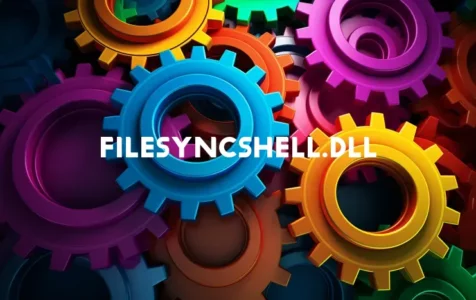FileSyncShell.dll, or the Microsoft OneDrive Shell Extension, is an integral component of Microsoft OneDrive, a cloud storage service provided by Microsoft. The primary function of FileSyncShell.dll is to allow software applications to utilize common functionalities, supporting features such as the OneDrive context menu when right-clicking and the display of synchronization status icons on files and folders within Windows Explorer.
When OneDrive operates smoothly on a computer, FileSyncShell.dll typically remains in the background, contributing to OneDrive’s functionality without interrupting the user’s workflow. It is located under the user’s profile directory, often at this path: C:\Users\USERNAME\AppData\Local\Microsoft\OneDrive\17.3.6390.0509.
Is FileSyncShell.dll Safe?
FileSyncShell.dll is a legitimate file from Microsoft, with a digital signature verifying its source and integrity. While the file itself is designed to be safe, the possibility exists, as with any file on a computer, that it can be mimicked or targeted by malicious software.
Users may question the safety of FileSyncShell.dll if they experience system errors related to the file, if it behaves unexpectedly, or if an antivirus scan flags it as suspicious. It’s important to note that these occurrences do not necessarily mean that the file is a virus or malware.
Expert Tip: For smoother PC performance, consider using a PC optimization tool. It handles junk files, incorrect settings, and harmful apps. Make sure it's right for your system, and always check the EULA and Privacy Policy.
Special offer. About Outbyte, uninstall instructions, EULA, Privacy Policy.
Could FileSyncShell.dll Be a Virus or Malware?
Although the original FileSyncShell.dll provided by Microsoft is not malware, cybercriminals could create malware that disguises itself with the same name. To determine if FileSyncShell.dll is legitimate, you should observe its location on your system, ensure it is signed by Microsoft, and check for any file size discrepancies that could indicate tampering.
Common Issues with FileSyncShell.dll
FileSyncShell.dll can occasionally cause errors that affect system performance or usability, such as system crashes or slow file explorer operations. Common causes of FileSyncShell.dll errors include corrupted files, failed installations or updates of OneDrive, or system-wide issues affecting the Windows OS. It may also cause conflict when it records keyboard or mouse inputs or if it manipulates other programs.
To verify whether FileSyncShell.dll is causing issues, you can perform a scan using a Security Task Manager, which provides a risk rating and detailed information on running tasks, or you could consult the Event Viewer in Windows for detailed error information.
Fixing FileSyncShell.dll Related Issues
If you encounter problems with FileSyncShell.dll, the following steps may help to fix the issues:
1. Check for OneDrive updates: Ensure that you’re running the latest version of OneDrive.
2. Run System File Checker (SFC): Use the `sfc /scannow` command in Command Prompt (admin) to repair corrupted system files.
3. Perform a DISM scan: The Deployment Image Servicing and Management (DISM) tool can help fix Windows corruption errors.
4. Remove and reinstall OneDrive: Sometimes, uninstalling and then reinstalling OneDrive can resolve the problem.
To uninstall OneDrive, go to the Control Panel, click on “Programs and Features,” find Microsoft OneDrive in the list, right-click it, and select “Uninstall.” After that, you can download the latest version of OneDrive and install it.
If you suspect malware, run a comprehensive antivirus scan. For advanced users, checking the registry for inconsistencies can also be a step but is recommended only for those who have experience with Windows Registry.
Remember, if you are not familiar with these technical steps, it might be better to consult a professional or Microsoft support to guide you through the process or perform the necessary actions.
User Experiences and Community Discussions
User experiences with FileSyncShell.dll can vary. While some may not encounter any issues, others might experience system conflicts or errors. Community discussions often provide real-world insights into how users have resolved specific problems.
In conclusion, FileSyncShell.dll is a legitimate file from Microsoft. However, if you encounter issues with this file, implementing the recommended fixes or seeking professional advice is advisable to ensure the safety and efficiency of your computer system.
